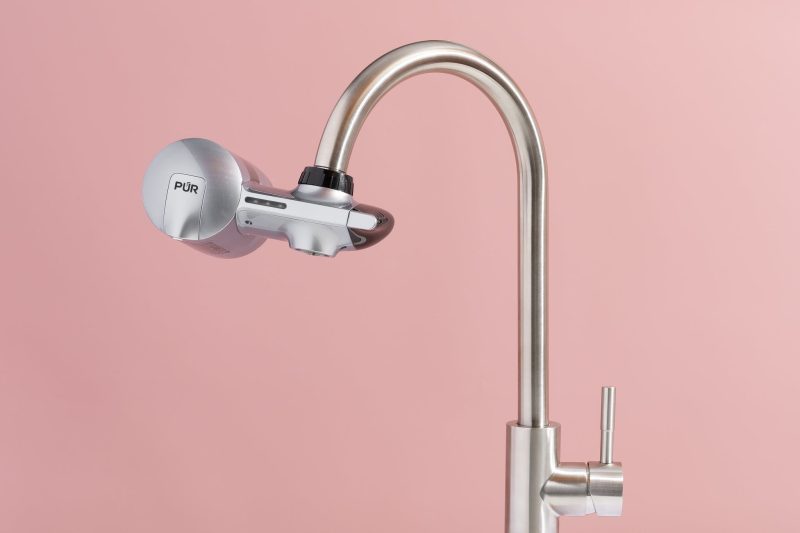This post contains affiliate links. As an Amazon Associate, we earn from qualifying purchases.
Carbon filters do not soften water. They only remove certain impurities from it.
Carbon filters are effective in removing bad taste, odor, and chemicals like chlorine from tap water. However, they do not have the ability to change the hardness or softness of water. A carbon filter is a device that uses activated carbon to remove impurities from water.
It is a popular option for people who want to improve the taste and quality of their tap water. Carbon filters come in different sizes and shapes and can be either attached to a faucet or installed under the sink. Although carbon filters are not effective in softening water, they are an affordable and easy-to-use solution for improving the overall quality of tap water.

Credit: www.ifilters.com
Understanding Water Hardness And Softening
Have you ever noticed mineral build-up on your faucets or appliances? This is often caused by hard water, which is water that contains high levels of dissolved minerals, mainly calcium and magnesium ions. Water softening is the process of removing these minerals to prevent the build-up of scale and improve the quality of your water.
Here’s what you need to know:
Definition Of Water Hardness
Water hardness is typically measured in grains per gallon (gpg) or parts per million (ppm). The hardness level of water is determined by the amount of calcium and magnesium ions it contains.
Types Of Ions Present In Hard Water
- Calcium ions: This is the most common type of mineral found in hard water, causing most of the buildup on appliances and fixtures.
- Magnesium ions: Magnesium is the second most common mineral in hard water, and it can also cause scale buildup.
Consequences Of Hard Water
- Scale buildup: Hard water can cause scale buildup on pipes, water heaters, and appliances, leading to clogs and inefficiencies.
- Soap scum: Hard water can also react with soap to form a scum that can be difficult to remove from surfaces.
- Dry skin and hair: The minerals in hard water can leave a residue on skin and hair, making it feel dry and itchy.
Different Methods Of Softening Water
- Ion exchange: This is the most common method of water softening, where resin beads are used to exchange the calcium and magnesium ions for sodium ions.
- Salt-free water softeners: These use a special type of resin beads to attract and trap the minerals, leaving your water free of hardness without adding sodium to it.
- Reverse osmosis: This method filters out minerals, as well as other impurities, to provide clean and soft water.
- Chemical softening: This involves adding a chemical, such as lime or washing soda, to the water to remove the minerals.
Now that you understand water hardness and softening, you can make an informed decision about which method is best for you. Remember, the quality of your water can have a big impact on your daily life and household appliances, so it’s important to choose wisely.
What Are Carbon Filters And How They Work
Water treatment is crucial to ensure that the water we consume is safe and healthy. Carbon filtration is one of the methods commonly used for water treatment. Carbon filters are known for their ability to remove impurities from water. We will discuss what carbon filters are, how they work, the different types of carbon filters, and how they compare with other methods of water treatment.
Definition Of Carbon Filters
Carbon filters are devices that remove impurities and contaminants from water. These filters use activated carbon, also known as activated charcoal, which traps and removes impurities and contaminants from the water.
The Science Behind Carbon Filtration
Carbon filters work on the principle of adsorption. The activated carbon in the filter attracts and holds onto the impurities and contaminants in the water. The carbon has a large surface area, which increases the surface area available for adsorption.
This means that the carbon filter can remove a larger number of impurities from the water.
The Different Types Of Carbon Filters
There are two main types of carbon filters: granular activated carbon (gac) and block activated carbon (bac). Gac filters are made up of loose carbon particles and are used in systems that require a high flow rate. Bac filters, on the other hand, are more compact and are used in systems that require a high level of purification.
How Carbon Filters Remove Impurities From Water
Carbon filters are effective in removing impurities such as chlorine, sediment, volatile organic compounds (vocs), and other chemicals from water. When water passes through the activated carbon, the impurities and contaminants in the water are adsorbed onto the carbon. The clean water then passes through the filter, leaving behind the impurities and contaminants.
Comparing Carbon Filters With Other Methods Of Water Treatment
There are several methods of water treatment, including reverse osmosis, distillation, and uv treatment. Compared to these methods, carbon filters are less expensive and require less maintenance. Carbon filters are also effective in removing certain impurities that other methods may not be able to remove.
However, carbon filters may not be effective in removing microorganisms from water.
Carbon filters are an effective method of water treatment. They are easy to use, require minimal maintenance, and are relatively inexpensive. If you are looking for a way to remove impurities from your drinking water, a carbon filter is a good option to consider.
Carbon Filters For Water Softening
Can Carbon Filters Soften Water?
Carbon filters are often used to improve the quality of tap water, and they are widely marketed as a solution for softening hard water, but can carbon filters really soften water? In short, carbon filters cannot soften water entirely, but they can help to some extent.
How Effective Are Carbon Filters At Softening Water?
Carbon filters are effective at removing some of the minerals that cause water hardness, such as calcium and magnesium ions. When water flows through a carbon filter, it passes through activated carbon, which attracts and traps the minerals, which results in cleaner and better-tasting water.
However, carbon filters only remove the minerals that dissolve in water and do not change their chemical composition. So while carbon filters can improve the taste of hard water and remove some hardness, they cannot entirely soften water.
Understanding The Limitations Of Carbon Filters
It is important to understand that carbon filters have their limitations. They may remove the minerals that cause hard water, but they do not remove other contaminants that may be present in your water. Carbon filters can also quickly become overwhelmed when exposed to very hard water, leading to decreased water flow and reduced filtration effectiveness.
Additionally, the cost of maintaining and replacing carbon filters can add up over time, making them an expensive solution for water softening.
Comparing Carbon Filters For Softening Water With Other Methods Of Water Softening
While carbon filters can help to improve water quality, there are other methods available for softening water that can be more effective. Here are some of the popular methods:
- Ion exchange resin: This method removes the calcium and magnesium ions by exchanging them for sodium ions in the water. This process results in softened water and is more effective than carbon filters.
- Reverse osmosis: A reverse osmosis system uses a membrane to remove minerals, contaminants, and impurities from the water. It is highly effective at removing hard water minerals and other contaminants.
- Magnetic or electronic water descalers: These devices claim to alter the behavior of minerals in water to reduce their ability to create scale and buildup in pipes and appliances. However, there is limited evidence of their effectiveness.
Carbon filters are a convenient and affordable method for improving the taste and quality of water. They can remove some minerals that cause hardness, but they cannot soften water entirely. Depending on your needs, other water softening methods might be required.
Choosing The Right Carbon Filter For Water Softening
Factors To Consider When Choosing A Carbon Filter For Water Softening
When choosing a carbon filter for water softening, there are several factors that you need to consider to ensure that you choose the right one. These factors include:
- Water hardness: Determine the hardness of the water in your area. This will help you choose a carbon filter that can efficiently soften the water.
- Filter size: Consider the size of the carbon filter. A larger filter will have a higher capacity and will last longer before requiring replacement.
- Water flow rate: The flow rate of your water supply will affect the efficiency of the carbon filter. Choose a filter with a suitable flow rate that meets your needs.
- Filter lifespan: Look for a carbon filter with a longer lifespan to minimize the need for frequent replacement, which can be costly and time-consuming.
- Cost: Consider the cost of the filter and compare it with others available in the market that meet your requirements.
Types Of Carbon Filters For Water Softening
There are two main types of carbon filters for water softening: granular activated carbon (gac) filters and activated carbon block (acb) filters.
- Gac filters: These filters use granular activated carbon to remove impurities from water. They are capable of removing organic compounds, chemicals, and bad odors and tastes from water. However, they are not as effective in removing inorganic compounds and some minerals.
- Acb filters: These filters use activated carbon blocks that have a tighter porous structure than gac filters, which makes them more effective in removing impurities. They are capable of removing both organic and inorganic compounds, including minerals that cause water hardness.
How To Determine The Right Size And Capacity Of A Carbon Filter For Your Needs
It is essential to choose the right size and capacity of a carbon filter when considering water softening. Here are some factors that can guide you in determining the right size and capacity:
- Water usage: Consider the number of people using the water and the amount of water used daily. This will help you choose a carbon filter with a suitable capacity to meet your needs.
- Filter lifespan: Consider the lifespan of the filter and choose a size that can last for an extended period before requiring replacement.
- Water hardness: The level of water hardness will guide you in choosing the right size and capacity of the carbon filter. Harder water requires a larger and more potent filter to remove the minerals causing hardness.
By considering these factors, you can select the right type, size, and capacity of a carbon filter for water softening that meets your needs.
Maintenance And Care For Carbon Filters
Caring for and maintaining your carbon filter is just as important as the initial installation. Regular maintenance and appropriate replacement of carbon filters will keep your water refreshed and clean. In this section, we will cover important tips about the care and maintenance of carbon filters.
How To Properly Care And Maintain Carbon Filters
To ensure the best performance of your carbon filters, it’s important to practice routine cleaning and maintenance. Here are some steps to properly care for your carbon filter:
- Follow the manufacturer’s instructions for installation and proper use.
- Routinely clean the pre-filter to eliminate any debris that might block the flow of water.
- The carbon filter should be replaced at least once every six months.
- It’s highly recommended that you check the product manual for any special requirements regarding your carbon filter’s maintenance and replacement.
When To Replace Carbon Filters
Carbon filters lose their efficacy over time, and need to be replaced accordingly. Inadequate maintenance or physical damage to the filter could also contribute to a reduced lifespan. Here are some signs that your carbon filter needs to be replaced:
- Slow water flow: Clogs in the filter could cause a buildup of debris, causing low water pressure.
- Odd taste or odor: If your water begins to have an unusual taste or smell, it’s time for a replacement.
- Duration of use: Generally, the carbon filter needs to be replaced periodically to ensure and to maintain high filtration efficacy.
Common Issues With Carbon Filters And How To Troubleshoot Them
Although carbon filters hardly ever have issues, recommending solutions will go a long way in case of any incidents. Common carbon filter problems are easy to recognize and fix, thus saving you from replacement costs. Here are some quick fixes to some common carbon filter issues:
- Water leaks: Tighten the connections and replace any damaged gaskets.
- Decreased water flow: Cleaning the pre-filter or replacing the carbon filter could restore the right water flow.
- Foul odor: Soaking the filter in a solution of warm water and vinegar for 30 minutes before rinsing it thoroughly could mitigate any scents.
Carbon filters are an essential tool in delivering clean and fresh drinking water. By caring for and maintaining your carbon filter properly, it’ll provide years of hassle-free filtration performance.
Frequently Asked Questions For Does Carbon Filter Soften Water
How Does A Carbon Filter Work To Soften Water?
Activated carbon filters can remove organic contaminants, chlorine, and other chemicals from water, leaving it cleaner and clearer. However, they do not typically soften water by removing hard minerals like calcium and magnesium. So, a carbon filter alone won’t make your water significantly softer, but it can improve its taste and smell.
What Is Hard Water And Why Is It A Problem?
Hard water contains high levels of dissolved minerals, especially calcium and magnesium. It can cause a buildup of scale on plumbing fixtures and appliances and reduce their efficiency. Hard water can also dry out skin and hair, leaving them dull and brittle.
It may toughen clothes and reduce lather formation in soaps or detergents.
How Can I Tell If My Water Is Softened?
Softened water feels slippery and can form suds quickly when mixed with soap or detergent. Look out for other signs that indicate soft water, such as a decrease in limescale buildup on faucets, soap scum in the shower, shiny hair, and better moisture retention for skin.
Conduct a test using water-testing kits available in the market to confirm.
Is It Necessary To Soften All Types Of Water?
No, not all types of water necessarily require softening. Some regions have naturally soft water that doesn’t need treatment. Even hard water isn’t always problematic. If you’re not facing issues due to hard water, you might not need to soften it.
It all depends on the individual situation.
How Often Should I Replace My Carbon Filter?
Depending on usage and water quality, carbon filters last about 6-12 months. However, you should replace them sooner if you notice a drop in flow rate, low-quality water, or changes in taste or odor. It’s always best to follow the manufacturer’s recommendation or carry out a water test to detect filter failure.
Conclusion
To sum up, the question of whether carbon filters soften water has a mixed answer. While carbon filters can remove some minerals that cause hardness, they do not actually soften the water. Carbon filters primarily remove contaminants like chlorine, sediment, and pesticides, while leaving minerals like calcium and magnesium intact.
However, using a carbon filter in combination with other water treatment methods may help to reduce overall water hardness. It is important to note that the effectiveness of carbon filters and other filtration methods can vary depending on individual water quality and composition.
Ultimately, the decision to use a carbon filter for water softening purposes should be based on individual needs and preferences. As always, it is recommended to consult with a qualified professional to determine the best options for obtaining healthy, clean, and soft water.



